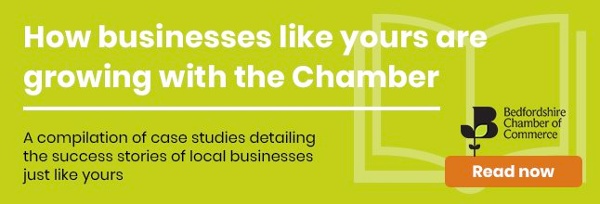Some of the world’s greatest leaders, entrepreneurs and thinkers are known to be masters of productivity.
Hearing of their work ethics and the subtle hacks they implemented into their days can teach us a lot about how to manage our own time for maximum productivity.There’s no secret formula to reaching your peak productivity. What it comes down to is commitment, time management and discipline.
Fortunately, these hacks are simple enough to emulate. By taking control of our schedules, we can accomplish more, perform better and inspire employees to prioritise more effectively.
Keep it simple
'Keeping it simple' is great business advice. Remember the theory that Steve Jobs wore the same outfit day in day out as a means of saving time, mental energy every morning? He’s right -simplicity is key.
Our lifestyles are abundant and we must keep this in check if we are to eliminate decisions and implement structure into our daily lives. Leaving yourself open to even minor decisions can gradually drain you of valuable mental energy, leaving you lethargic and overwhelmed. Plus, the indecisiveness that comes from having too much choice can stifle productivity, but this can be tackled with predefined choices.
Opt for simplicity where possible, from everything to your workouts and meals, to inboxes, meetings and schedules.
You'll find that through simplifying as many areas of your life as possible, you can maximise your time by getting stuck into tasks rather than dithering around trying to decide which route to take. Generally, stick with what you know.
Prioritise sleep and wellbeing
Thomas Edison was known for his midday naps, as was Winston Churchill. A midday nap was advocated for helping them to regain focus and recharge the mind and body for the rest of the day. While a 2pm nap is out of the question for most of us, to perform at our most effective, we simply cannot forgo good sleep hygiene. Sleep plays a huge role in learning and memory, helping us process information from the previous day.
Good sleep hygiene starts with a nighttime routine. Setting a routine for when you go to sleep and wake up too, can be highly effective for maintaining good sleep hygiene, and help make your days all the more effective.
Equally, be wary of using your devices too close to bed time. The emission of blue light by your devices can disrupt sleep. Specialists suggest phone usage be limited up to two hours before turning in and ideally, kept out of the bedroom entirely. Following this mantra will help you put in place a non-negotiable 'switch-off time' - so no more emails before bed.
Meditation and quiet time are also vital to success. Investing time into your wellbeing can prevent ill health and burnout which could rob you of time and productivity in the long run.
Become an early riser
Some of the world’s most focused, successful and productive entrepreneurs advocate early morning starts for their enviable productivity.
Those early morning hours can be a prime time to exercise, meditate, or process your thoughts before the world awakes. Nelson Mandela was known to take early morning walks - a time for him to think and reflect on the coming day, and process the day before.
You might prefer to use this time to plan the day ahead, write down your goals or record your thoughts and ideas in a journal. However you use this time, it can give you a head start on the rest of the world, as getting up early can trigger all sorts of physical and mental processes that will improve the coming day.
Focus on the important and not urgent
As famously quoted by Dwight D. Eisenhower, “What is important is seldom urgent, and what is urgent is seldom important.” This famous quote has been popularised since in numerous self-help books and productivity blogs.
The idea is that by channeling your time and energy into the important tasks, and delegating the urgent, you will see better results in the long term.
Adhering to this criteria when assigning or scheduling tasks can help you to prioritise at your most effective. For example, approach each task with the questions, is this important, urgent, both, or neither?
For tasks that are both urgent and important, such as emergencies and crises, the likelihood is they need to be dealt with first. Important tasks that are not urgent can be scheduled into your day. Tasks that are not important but are urgent should be delegated to others, and tasks which are neither urgent nor important can be discarded from your schedule.
It's quite liberating to be able to approach your schedule with this mindset as it gives you a rationale for dealing with those interruptive, time-wasting tasks
No nonsense meetings
Having zero tolerance to inefficient meetings can transform your daily schedule. The default for meeting length has come to be one hour but in truth, the goal of most meetings can be met within 30 meetings or less.
Cut your meetings down to a maximum of 30 minutes and stick to a strict and rationalised agenda which serves to complete the objective of the meeting. Whenever a team member defers from the agenda, avoid following their trail and suggest they save their contribution for the next meeting (where you can write this into the agenda). An agenda helps keep everything on track, productive and meaningful. Meetings are necessary for business, but only when everyone leaves with a clear resolution for issues and clarity on the task in hand.
Email windows
When your email notifications are one, one can be easily distracted and tempted to respond immediately. Phone calls and instant messaging can be used to deal with urgent and timely requests. Many great leaders schedule in windows of time to check and answer emails so that they can focus on completing important tasks outside of those windows.
So there you have it. Ultimately, we all have to work smarter, rather than harder, to reach peak productivity. Our work ethics can sometimes get the better of us, pushing us to work late into the evening, forgo breaks and our own wellbeing, and neglect other important areas of our lives. We all have the same amount of hours in the day, but only few have mastered the art of managing these effectively. Which hacks will you be trying out?





![The Bedford College Group logo [WHITE]](https://www.chamber-business.com/hs-fs/hubfs/The%20Bedford%20College%20Group%20logo%20%5BWHITE%5D.png?width=139&height=81&name=The%20Bedford%20College%20Group%20logo%20%5BWHITE%5D.png)
